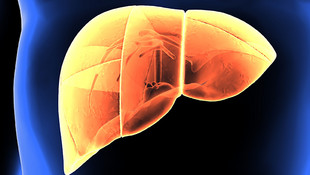Increased hepatic expression of dipeptidyl peptidase 4 (DPP4) is associated with non-alcoholic fatty liver disease (NAFLD). Whether this is causative for the development of NAFLD is not yet clarified. DZD-researchers investigate the effect of hepatic DPP4 overexpression on the development of liver steatosis in a mouse model of diet-induced obesity.
In mice that are given a high-fat diet, an increased production of the enzyme DPP4* by the liver promotes an increase in body fat, the development of fatty liver disease and insulin resistance. These were the findings of a current study by DZD-researchers in Potsdam and Tübingen."In combination with our observations from additional human and cell studies, these results indicate that increased DPP4 production by the liver is the cause rather than the consequence of a fatty liver and insulin resistance," says the head of the study, Annette Schürmann from the German Institute for Human Nutrition Research (DIfE), a partner of the German Center for Diabetes Research (DZD). The research team led by Schürmann has now published its findings in Molecular Metabolism.
Original publication:
Christian Baumeier et al: Elevated hepatic DPP4 activity promotes insulin resistance and non-alcoholic fatty liver disease. Molecular Metabolism 2017; DOI: 10.1016/j.molmet.2017.07.016
Elevated hepatic DPP4 activity promotes non-alcoholic fatty liver disease

If the liver produces more of the enzyme DPP4 and releases it into the blood, this can lead to fatty liver disease. ©PIC4U - stock.adobe.com
